
Bull & Bush





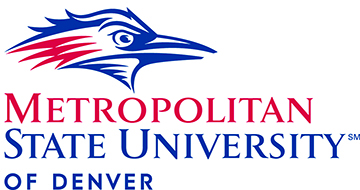
by Robert Davis
A record number of minimum-wage workers at Metropolitan State University of Denver (MSU) received $130,442 in back pay for lost wages after a Denver Labor investigation found the university unintentionally misclassified the employees.

849 employees received the restitution on October 30, 2020. Many of the employees impacted were students working part-time in admissions, student orientation, and student activities departments.
The restitution came out of MSU’s reserve fund, according to the university’s finance department, and covers lost wages dating back to the beginning of the year.
Denver Labor began its investigation in March after a MSU employee submitted a claim to its office. During the investigation, the agency obtained payroll records showing several MSU employees were paid the state minimum wage of $12 per hour instead of Denver’s bottom wage of $12.85.
“Initially, the university’s officials incorrectly believed they were exempt from the citywide minimum wage law because they were state of Colorado employees,” the investigation report reads. “However, the city ordinance clearly says all work performed within the geographical boundaries of the City and County of Denver is covered by the minimum wage requirements.”
Scheduled increases of the minimum wage will push it up to $14.77 per hour next year, and then to $15.87 in 2022. These “unfunded mandates,” as MSU’s Associate Vice President for Administration/CFO George Middlemist describes them, put a strain on the institution’s resources, especially in the wake of the COVID-19 pandemic.
A combination of declining enrollment rates and state funding cuts caused MSU to lose $16 million in funding for the 2020-2021 school year. Middlemist said the institution already holds Colorado’s lowest per pupil funding rate, and the cuts make it harder for MSU to operate.
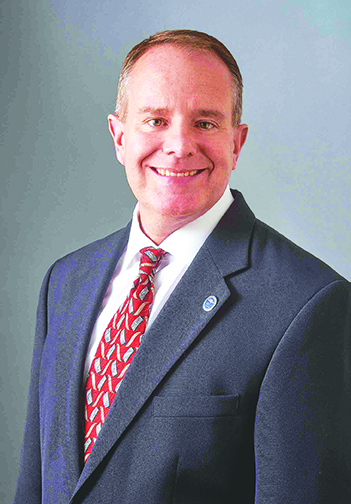
Middlemist said the amount of backpay added to each employee’s October 30 paycheck was modest but is “certainly an important amount for them as we all struggle during this crisis.”
“We went into this knowing we wanted to do right by our employees and our students,” Middlemist told the Glendale Cherry Creek Chronicle in an interview. “The amount we paid in backpay is small compared to future impacts, however. We anticipate a $2-to-$3 million impact in the coming years.”
Denver Labor said it worked with MSU “to find a way to pay workers the money they were owed according to the law, while striving for the least negative impact to the institution in these difficult economic times.”
“This is the single largest number of underpaid employees we’ve ever uncovered in a wage investigation,” City Auditor Timothy O’Brien said in a statement. “These 849 employees are also students and getting them these funds while they may be facing other economic hardships or student loans is a real win.”
In September, MSU’s board of trustees voted unanimously to increase tuition starting in the spring of 2021 to combat declining enrollment rates. Since 2011, MSU’s enrollment rate has remained relatively flat. However, after the COVID-19 pandemic took hold, enrollment dropped 6.2%, amounting to about $17 million in lost revenue, according to a report by the university’s student newspaper.
While the tuition is separate from the labor issue, according to Middlemist, the 3% increase for resident and nonresident students translates to an increase of $8 per credit hour for resident students and $25 for nonresidents. Overall tuition will increase $108 for resident students, while nonresident students will see an increase of $337.
MSU plans to redirect $680,000 of its tuition revenue to increase financial aid for students, the university said in a press release. It is also working to leverage CARES Act funding and develop a program to reduce student textbook and material costs.
“Trustees and University leaders struggled to balance the financial impact on students at this challenging time with the long-term financial health and sustainability of the University,” MSU President Janine Davidson said in a statement. “The decision was also not made quickly but is the result of months of research and discussion by the Budget Recommendation Committee, including representation from students.”
Denver Labor is a division of the City Auditor’s Office that “promotes lawful employment and wage compliance while providing exceptional labor, wage, and hourly enforcement,” according to its website.
As of October 2020, the division has recouped $831,000 in unpaid wages, eclipsing its previous high of $701,787 in 2016. Last year, the division recouped $678,559 in unpaid wages, and just $265,423 in 2018.
“The goal is to get money to workers according to the law, not to punish employers for an honest mistake,” O’Brien said. “Our office frequently works to find solutions that will bring employers into compliance without putting them out of business.”
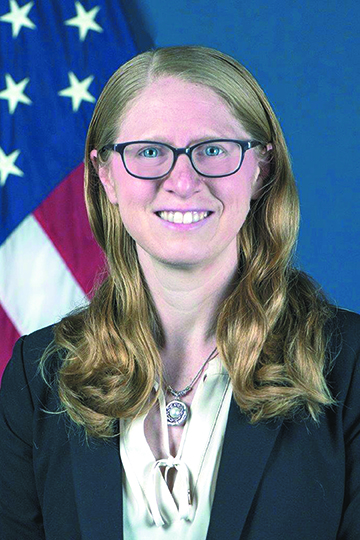
Fight Over Unbuffered HOV Lanes Breaks Out At CDOT
by Charles C. Bonniwell

Highly controversial Colorado Department Of Transportation (CDOT) Director Shoshana Lew is leading the agency into adopting unbarricaded/ non-buffered HOV lanes throughout the Front Range, including on I-25, C-470 and I-70. Lanes which — according to individuals who, for obvious reasons, do not wish to be identified for fear of losing their jobs within CDOT — are unsafe for drivers, and whose sole purpose is to provide money for the private companies that are helping to fund the projects. There will be close to 200 miles of highly dangerous roads in the Front Range under Lew’s planning. Originally CDOT created barricaded HOV lanes along U.S. Highway 36 and into and out of downtown Denver on I-25, which proved successful as safe passage for drivers and a good value for those who could afford them.
The purpose of the non-buffered HOV lanes are, according to CDOT, inter alia:
• Making safety improvements to reduce the number of crashes and fatalities.
• Decreasing travel time and increasing trip reliability (at least for those who can afford them).
• Employing congestion management to improve the travel experience.
But disgruntled CDOT employees argue non-buffered lanes accomplish none of the stated goals and, in fact, are being done to satisfy Lew’s increasingly desperate need for money. The state legislature has repeatedly refused to increase CDOT’s funding levels. In the fall of 2019, Colorado citizens turned down, by an 11 point margin, Proposition CC which would have allowed CDOT to use for its purposes the refunds taxpayers would have otherwise gotten under the Taxpayers Bill of Rights.
Extremely bitter about the election results, Lew and CDOT increasingly turned to private investors who would fund the road expansions in so-called Private Public Partnerships or P3s. The investors, all of whom come from outside Colorado, are primarily interested in ensuring a solid return on their investments. They do not view it as their task to worry about the safety of Colorado drivers or their traveling experience. Unfortunately, while CDOT is generally responsible for such concerns, Lew herself does not view private cars as a solution to Colorado’s transportation needs and thus has little interest in the safety and convenience of private car drivers.
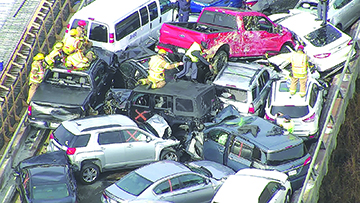
Buffered HOV lanes came quickly off the bargaining table. Lew’s HOV lanes would be separated from general purpose lanes simply by a couple of white lines. There was no one at the table to represent the car driving public as noted by some longtime CDOT employees who recognized what was happening.
First and foremost, studies have repeatedly shown that non-buffered HOV lanes do not decrease crashes and fatalities as claimed by Lew and CDOT but, in fact, increase them. A seminal 1979 Federal Highway Administration study found that a lack of physical separation between HOV and general-purpose lanes creates operational and safety problems, causing illegal maneuvers and speed differential between HOV lanes and the adjoining general-purpose lanes.
A study in 2004 published by the Texas Transportation Institute found that non-barrier HOV lanes experienced 41-56% higher injury crash rates compared to barrier-separated lanes. The increased injury crash rates were “likely due to the speed differential between the HOV and the adjacent general purpose lane.”
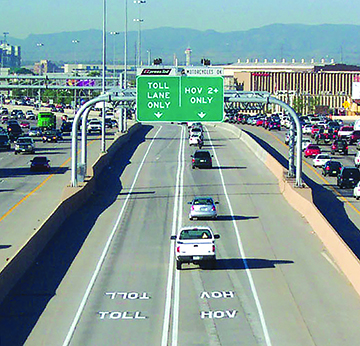
Similar studies conducted have reached similar conclusions in Virginia, California, Florida, and Minnesota. Because CDOT will, in effect, be putting people’s lives in danger by recklessly adopting non-buffered lanes, some wonder why there hasn’t been at least a debate or public discussion at some level in Colorado government.
Long-term CDOT employees blame Lew whose closed secretive nature is legendary. They view her as an incompetent elitist who believes, like the character played by Jack Nicholson in the movie A Few Good Men, that the public “can’t handle the truth.” Thus, she mandated that the life and death decisions concerning non-buffered HOV lanes should be made outside the public purview by a few CDOT allies of Lew and the out-of-state investors.
Longtime CDOT employees also point out how bad an investment those drivers who use the non-buffered HOV lanes are getting. The non-buffered lanes become incredibly congested during rush hours as frustrated drivers pay little or no attention to the two white lines separating the HOV lane and the adjoining general-purpose lane. There is therefore little or no “decrease in travel time” or “increased travel reliability” or “congestion management to improve the travel experience” for users of non-buffered HOV lanes. As one transportation expert who did not wish to be identified stated: “Why would anyone pay to increase their risk of being hurt in a car crash in a dangerous and often highly congested non-buffered HOV lane.”
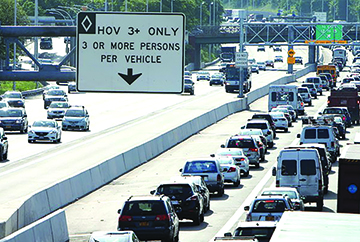
Another highly troubling aspect of Lew’s non-buffered HOV lanes is that they are usually only one lane for each direction. If a driver in the non-buffered HOV lane decides to go at or below the speed limit there is no legal way to get around that driver, causing increased incidents of road rage by drivers who paid to be in the HOV lane so they could get to where they wanted to go in a quicker manner.
Lew, CDOT and the out-of-state investors are relying on the doctrine of “sovereign immunity” against the inevitable lawsuits involving drivers getting killed in dangerous non-buffered HOV lanes. Moreover, Lew is reportedly desperate to jump ship and move back to Washington, D.C., where her highly politically connected family lives, and get a job somewhere in the anticipated Biden administration. The carnage she is creating on Colorado highways will, however, last for generations, according to CDOT employees.